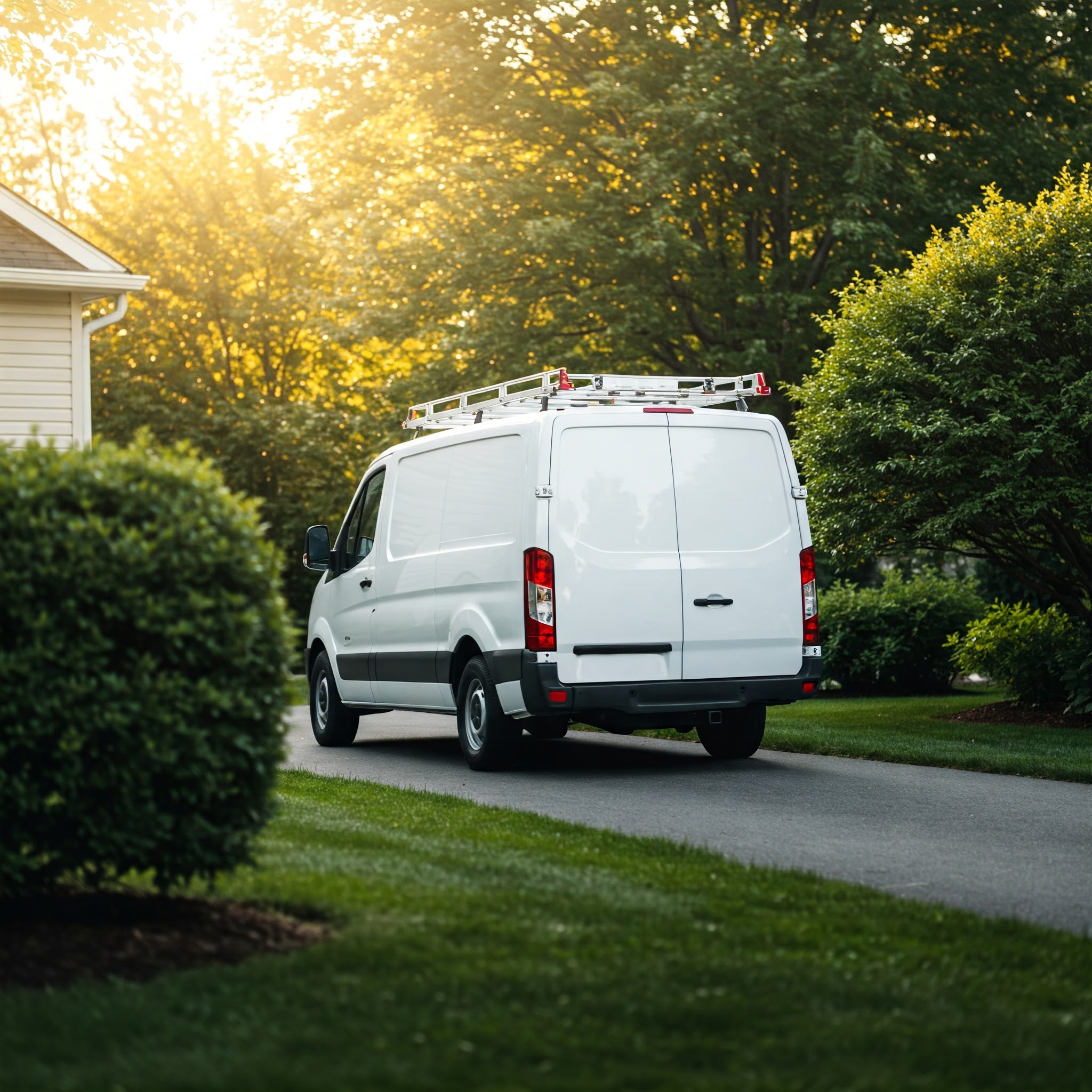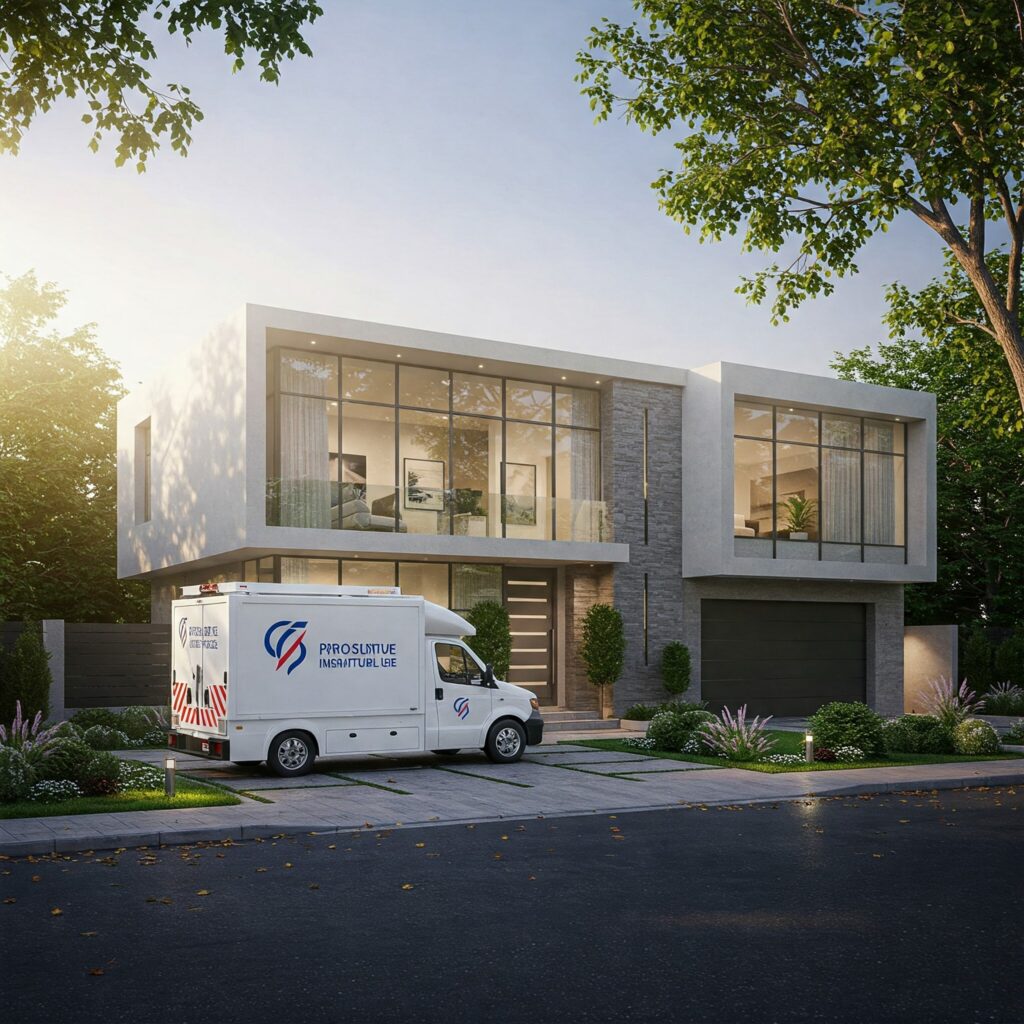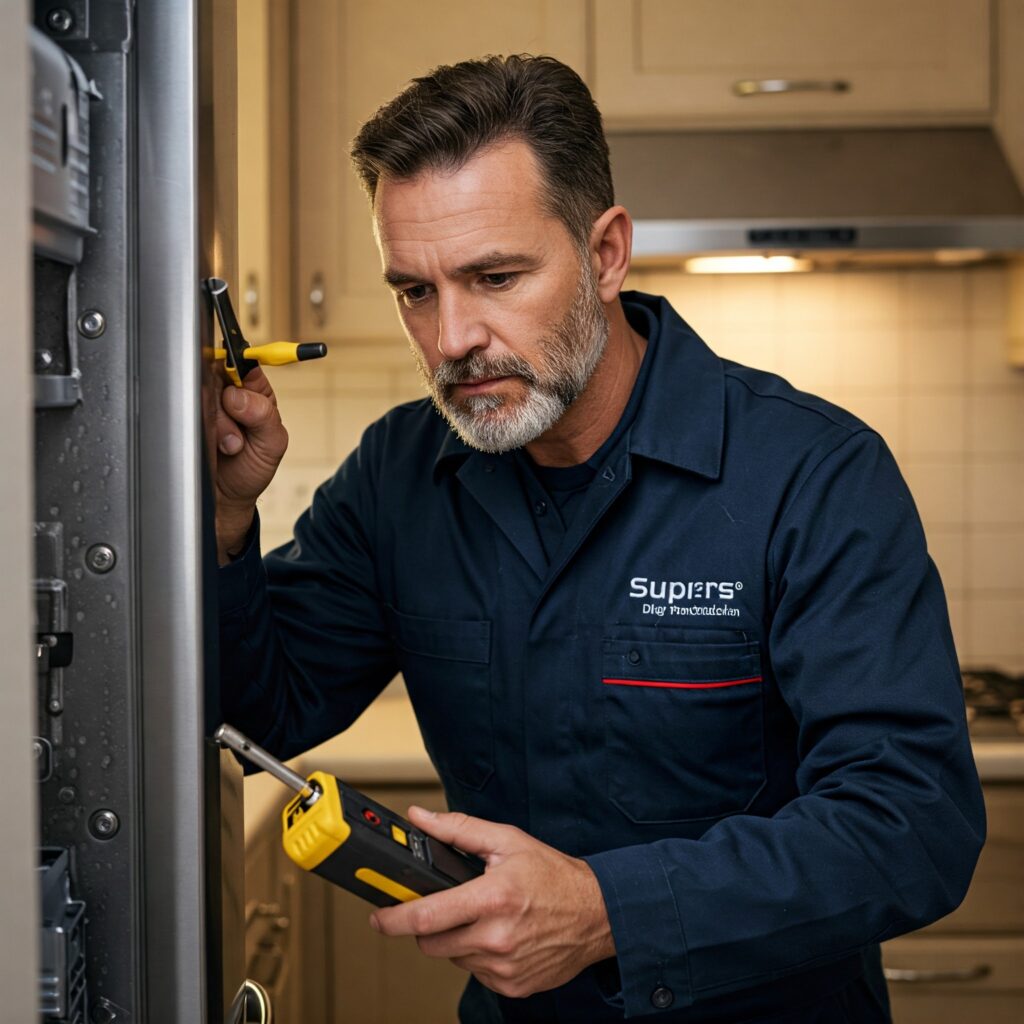Running an appliance repair business means paying attention to all the little details. One thing that might seem small but can cause big debates is where to park. Should technicians park in the customer’s driveway or on the street?
It might not seem like a big deal, but parking choices can affect safety, property damage, time, and customer satisfaction with your service. Let’s look at why parking on the street is usually the better choice, with simple explanations and facts to back it up.

1. Safety First: Backing Up Can Be Dangerous
Backing up isn’t easy and can be risky. Even though people only spend about 1% of their driving time in reverse, backing up causes nearly 25% of car accidents (TDI). For vehicles like the Ford Transit Connect—the kind many service companies use—it’s even more challenging because they have limited visibility out the back.
Studies show that about 60% of accidents with commercial vehicles happen while reversing (Driver Hire). Parking on the street avoids the need to back into or out of tight driveways, keeping everyone safer.
2. Avoiding Damage to Property
Parking in a driveway can be tricky. There’s less space, and it’s easy to scrape a car accidentally, hit a wall, or damage landscaping. Did you know that 91% of accidents in parking lots happen while backing up (Barteni Parking)? It’s the same idea with driveways—tight spaces mean more chance for mistakes. Plus, customers who aren’t used to having a car in their driveway might accidentally hit the service vehicle, simply because they aren’t expecting it to be there. This has happened several times in our experience at Hometown Hero Appliance Repair.
Even if nothing gets damaged, some customers worry about oil or fluid leaks from your vehicle. Even a spotless van can make them nervous. Parking on the street helps avoid these worries and keeps things simple.

3. What Customers Want
It’s essential to think about what customers prefer. A survey showed that higher-income households are more likely to prefer service vehicles parked on the street. For example:
- Households earning $150,000 or more: 35% liked street parking, 20% had no strong preference, and 1% were uncategorized. This means 56% of customers either preferred street parking or didn’t mind it, making it a practical choice for technicians.
By parking on the street, especially for customers who care about their property, you show respect and make a good impression.
4. Saving Time and Looking Professional
Parking in the driveway might seem faster, but it can waste time. Tight or cluttered driveways can take longer to navigate. Parking on the street makes it easier to get in and out quickly, so technicians can stay on schedule.
Street parking also looks more professional. It shows respect for the customer’s space and avoids seeming intrusive. Customers notice these small things and appreciate the thoughtfulness.

5. Rules and Best Practices
In some neighborhoods, there are rules about parking service vehicles in driveways. Even without strict rules, many fleet managers recommend street parking to avoid issues with property damage or unhappy customers. Following these guidelines can help protect your company’s reputation.
Bonus: If your service vehicle is wrapped or well-labeled, street parking improves the impressions you get on your best piece of advertising! A billboard can run $4k/month easily, but most wraps are only $1-2k and last 5+ years.
A Smart Approach
Sometimes, you’ll need to park in the driveway—like when there’s no street parking or local rules require it. But most of the time, parking on the street is safer, more professional, and more respectful to your customers.
Appliance repair technicians can make the smart choice by thinking about safety, property concerns, and what customers want. Parking on the street isn’t just about where you leave your van—it’s about leaving a great impression on your customers.
Addressing Common Objections
Many technicians have raised valid concerns about parking on the street. Let’s go through some of the most common objections and offer responses:
- “Blocking the road is inconsiderate.”
- Response: Technicians should park responsibly, ensuring they aren’t obstructing traffic. When parked legally and safely, street parking minimizes risks associated with backing out of driveways and improves visibility for everyone.
- “Sometimes I have to walk too far to park on the street.”
- Response: If street parking is impractical due to distance or lack of availability, using the driveway is understandable. The key is to prioritize safety and convenience without compromising customer satisfaction. Plus we all eat too many cheeseburgers when we’re out on the road; we need the steps!
- “I’ve had my van hit by neighbors when parked on the street.”
- Response: While this is a legitimate concern, parking on the street reduces the risk of property damage claims from customers, like oil stains or accidental driveway collisions. If the area is unsafe for street parking, driveway use is a practical alternative.
- “Backing into driveways is safer than backing into traffic.”
- Response: Backing into a driveway may reduce some risks, but it doesn’t eliminate them. Street parking avoids unnecessary reversing altogether, which remains one of the most dangerous driving maneuvers.
- “Customers often ask me to park in their driveway.”
- Response: If a customer specifically requests driveway parking, their preference should be respected. However, defaulting to street parking demonstrates professionalism and reduces risks unless otherwise directed.
- “There’s no street parking in rural or tight urban areas.”
- Response: In rural areas, driveways might be the only option, and in dense cities, finding parking can be challenging. Technicians should adapt to the situation while balancing safety and customer satisfaction.
- “I park in the driveway to save time going back and forth to the van.”
- Response: While convenience is important, parking on the street often creates a better impression and reduces risks. For large or complex jobs, organizing tools beforehand can minimize trips to the van. Make fewer trips by planning ahead.
- “Customers often open the garage and invite me to park close to the work area.”
- Response: Parking closer can be practical if the customer offers or insists. However, technicians should ensure they aren’t inadvertently causing concerns about property damage or oil stains. Just because you didn’t leak oil doesn’t mean you won’t get blamed for it.
